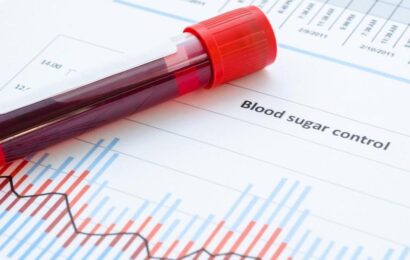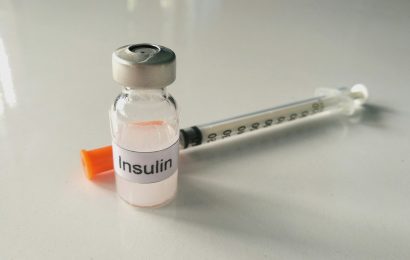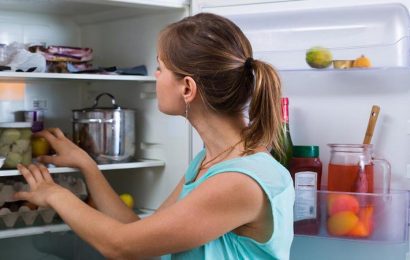March is National Kidney Month, and although April is right around the corner, keeping your kidneys healthy is important all year round. It’s never fun to think about kidney disease (or any type of diabetes complication, for that matter), but taking steps now can go a long way in helping you to prevent it.
Kidney facts and figures
Diabetes is the leading cause of kidney disease, and it’s estimated that about one in three adults with diabetes has kidney disease. People with type 1 diabetes as well as those with type 2 diabetes are at risk. Your kidneys are vital organs — their job is to filter waste out of the blood, along with extra water, to make urine. The kidneys also help to control blood pressure and make certain hormones that the body needs to stay healthy.
High blood sugar levels can damage the millions of small blood vessels inside the kidneys, and high blood pressure levels can also cause these vessels damage. When your kidneys are damaged, they can’t do their job very well. Further, kidney damage can cause blood pressure to go higher; it can also raise your risk of getting heart disease.
If kidney disease progresses, dialysis or a kidney transplant will be needed.
Fighting off kidney disease
It’s scary to think of getting kidney disease. But don’t let fear stop you from jumping on the kidney health bandwagon. You can be in the driver’s seat and hopefully prevent it, if you start now. Here’s how:
1. Get checked.
Health care folks spend a lot of time reminding you to check your blood sugars and know your A1C levels. Let’s not forget about “kidney numbers,” however. Two tests to make sure you’re getting include a urine microalbumin and a GFR (glomerular filtration rate). The microalbumin test is a simple urine test done in your doctor’s office. It checks for small amounts of protein in your urine, an early sign of kidney disease. The GFR is a blood test that tells your doctor how well your kidneys are filtering. A GFR of more than 60 means your kidneys are working as they should. You may need other blood tests, too; ask your doctor what tests are needed, and always ask about your results.
2. Manage those blood sugars.
You no doubt hear this a lot, and it might be annoying to hear it yet again. But the best way to ward off kidney disease (and any type of diabetes complication) is to do your best to keep your blood sugars and your A1C levels in your target range. Find out your target blood sugar ranges, along with your A1C goal (usually less than 7%), as they can be different for different people. A combination of healthful eating, physical activity, and medication is usually needed to keep your numbers at goal.
3. Keep an eye on blood pressure, too.
High blood pressure is a leading risk factor for both kidney disease and heart disease. You usually can’t tell if it’s high without getting it checked. For many people with diabetes, the blood pressure goal is less than 130/80; however, if you have high blood pressure, your goal may be lower. Once again, talk with your doctor about the right goal for you. High blood pressure can be managed with medication, weight loss (if needed), eating right, and staying active. Checking your blood pressure at home is a great way to stay on top of your blood pressure levels, too.
To get cutting-edge diabetes news, strategies for blood glucose management, nutrition tips, healthy recipes, and more delivered straight to your inbox, sign up for our free newsletters!
4. Eat healthfully.
Getting the right types of nutrients in your diet can help keep your kidneys healthy. And the same healthy “diet” can help you manage your blood sugars and keep your heart healthy, too. What does a healthy diet look like?
Fruits and vegetables.
Fruits and veggies contain important nutrients needed for overall health (not just kidney health), such as potassium, vitamins, fiber, and antioxidants. Go for fresh or frozen produce as much as possible, and shy away from juices and canned vegetables that contain a lot of sodium.
Protein.
Protein is an essential nutrient that helps maintain muscle mass and the immune system. Too much protein, however, can cause your kidneys to work overtime. A low-carb diet tends to be somewhat high in protein; while this may be helpful for your blood sugars, it may not be the best for your kidneys, especially if you are showing early signs of kidney damage (such as a high microalbumin level). Go easy with your portions of meat, poultry, or fish. Also, consider replacing some animal protein sources with plant proteins, including beans, lentils, and tofu.
Sodium.
Getting too much sodium in your diet can raise your blood pressure, which, in turn, affects your kidneys. The main source of sodium in our foods comes from processed foods, including frozen meals, cheese, snack foods, canned foods, condiments, and fast foods. Find out what your daily sodium goal should be from your dietitian or doctor, and start reading food labels for the sodium content. For reference, a low-sodium food has no more than 140 milligrams of sodium per serving. Also, bypass the saltshaker in favor of herbs and spices in cooking and on foods.
Fat.
To lower your risk of heart disease, focus on choosing healthy fats in your diet. Healthy fats don’t raise your cholesterol and can help lower heart disease risk. Plant oils, such as sunflower seed oil, olive oil, and peanut oil, are good choices, along with nuts, seeds, olives, and avocados. Limit foods that contain partially hydrogenated oils, which means that they contain trans (unhealthy) fat. Go easy on foods that contain saturated fat, as well, such as red meat, poultry skin, and high-fat dairy foods.
5. Watch the alcohol.
While a moderate amount of alcohol may be safe for you, too much alcohol can be harmful to the kidneys. Alcohol can interfere with the kidneys’ job of keeping the right amount of water in the body, and it may also raise blood pressure. In addition, too much drinking can cause liver disease, which, in turn, impacts how well your kidneys work. One or two servings of alcohol a day may be OK, but it’s always best to check with your doctor.
6. Stop the smoking.
Yes, smoking can be harmful to the kidneys, as well as to your heart, lungs, mouth, pancreas, and other organs. Smoking slows blood flow to the kidneys, affecting how well they function. And it can interfere with high blood pressure medicine, too. Now’s the time to make a plan to quit.
7. Medication.
Medications called ACE inhibitors and ARBs are used to treat high blood pressure. They might also help prevent kidney damage. Ask your doctor about these. Speaking of medication, some medications can be harmful to the kidneys. High doses of prescription and over-the-counter pain meds, some antibiotics, and antacids are just a few that you need to be careful about. Always let your doctor know what medications you’re taking at every visit; discuss your doses to make sure they’re safe, and also find out if there are other options that are safer for you.
Want to learn more about keeping your kidneys healthy with diabetes? Read “Managing Diabetic Kidney Disease,” “How to Keep Your Kidneys Healthy,” and “Protecting Your Kidneys.”





